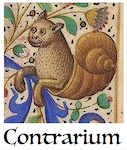From Covid to Russia, these are bad times to be an artist
First the lockdowns hit hard all types of artists and artistic venues. As art and culture are considered by most governments as “non-essential”, they were the first things to close down. Many artists and performers were unable to find work for months, or had to turn to other activities in order to make any money. Music, painting, cinema — almost everything was dead, for months.
Then, the vaccination campaign also hit them. Several artists who decided not to be vaccinated were also cancelled or were unable to perform, act or sing due to the vaccine mandates or the “vaccine passports” required in many Western countries.
Now it’s the Russians’ turn. Worldwide famous Russian soprano Anna Netrebko had her season at the NY Met Opera cancelled and has since then self-cancelled from all her engagements, since they would probably be cancelled anyway — “taking a time to think”. A performance by the 20-year old Russian pianist Alexandr Malofeev was also cancelled at the last minute by the Montreal Symphonic Orchestra, even though he had publicly declared to be against the war and against Putin. He was already in Montreal and had to fly back.
A literature course about Dostoevsky was cancelled for a while at a University in Milan — it was later reinstated due to protests, as Dostoevsky has been dead for quite a while now and it is not clear if he would have supported Putin or not.
Several other Russian artists of all fields are in the process of having their previous engagements cancelled just on the basis of their nationality.
What is going on?
This is clearly a case of demonization or dehumanization of the “enemy”, as it happened with the Japanese in America in World War II. However, the U.S. or Europe are not at war with Russia — at least, not officially. It’s only Russia and Ukraine.
It is not very clear what those sanctions against artists are trying to achieve. The economic sanctions are bad too, but at least they do have a twisted purpose to make the country suffer economically — even if they are a bit suicidal, as they are having a negative impact on the West too, and in particular in Europe, which depends on Russian gas. But the cancellation of Russian artists, many of whom are not even pro-Putin, is baffling. I don’t remember this happening before, although perhaps it did happen with German and Japanese artists during WWII?
The most worrying aspect of all this is that it might not stop with Russians. Sure, it’s Russians today, but tomorrow it can be the French, or the Guatemalan, depending on which other conflicts happen, or simply people who have the wrong political opinions, or anyone who said any politically incorrect thing twenty years ago, as it already happened in some cases.
And of course the Covid and the vaccine passport thing is probably just taking a rest while the Ukraine war goes on, as people can’t concentrate on hating a virus and hating Russians at the same time, but it will probably come back a few months down the line, and the first ones to be inconvenienced are going to be, again, artists and those who love art and culture.
Besides, in our increasingly interconnected and digital world, where Big Tech companies control most speech and will control the flow of money too if digital cash becomes the norm, it is possible to completely remove an inconvenient artist from any platform, be it a payment platform such as PayPal or Patreon, or publishing platforms such as Youtube or social media.
However, I want to end on a positive note, and since my last post was about Andrei Tarkovsky, I’d like to mention that he suffered censorship and difficulties for most of his life, and in fact he only managed to complete 7 full-length films during his whole career — and the last two had to be filmed outside of his country as he became a dissident of the Soviet Union, living in exile, and could not even see his own son for years. And yet he never stopped believing in the transformative power of art.
So I finish with a quote of something he said, which I think is interesting:
“I believe… that an enormous task has been entrusted to art. This is the task of resurrecting spirituality. To me, man, in his substance, is essentially a spiritual being and the meaning of his life consists in developing his spirituality. If he fails to do so, society deteriorates. Art should be there to remind man that he is a spiritual being, that he is part of an infinitely larger spirit to which he will return in the end.”

